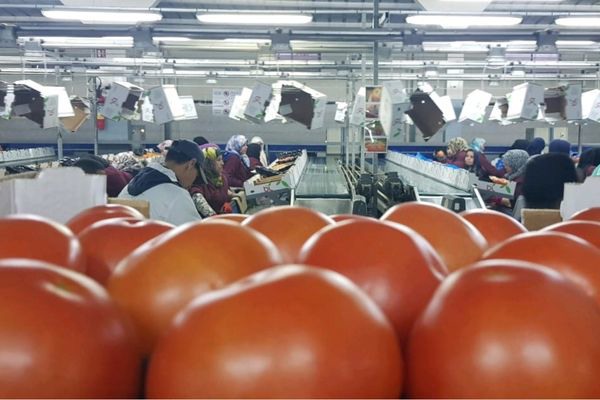Morocco is imposing quotas on tomato exports in an effort to boost local supplies and lower prices ahead of the fasting month of Ramadan. Rising input prices, pest attacks, and repeated droughts have combined to hamper production at the world’s fourth-largest tomato shipper. However, the restrictions on Morocco’s packing factories could exacerbate the produce shortfalls that have already sparked rationing at some European supermarkets.
The Moroccan government has decided to cut tomato exports to all foreign destinations through the application of a daily export quota, said Asmaa Baibane, export manager of BL Agri.
Asmaa explained: "Packing stations and exporters were informed of this decision on Sunday, February 19, with an immediate effect for an undetermined period. Its aim is to protect Moroccan consumers from the rise in tomato prices. Exporters have been informed that new exportation quotas will remain effective until prices return to normal averages".

The decision does not affect all tomato varieties, but only round and grape tomatoes, adds Asmaa.
The new exportation quota has reduced exports of these two varieties to only 10% of the usual daily volumes. Asmaa explains, "this has simply blocked our tomato exports to Europe, and our European customer didn't appreciate it. Rather than prioritize some customers over others, we preferred to work on other products for the moment."
This decision comes a month before the month of Ramadan, which has a great demand for tomatoes on the Moroccan domestic market, and amid the inflation of prices of fresh produce. This is the second decision of this nature this month after the ban on the export of tomatoes, onions, and potatoes to West Africa.
According to Asmaa, the decision will contribute to the decrease of tomato prices in the local market by more than 50%.
For more information:
Asmaa Baibane
BL Agri
Tel.: +212 661-060466
Email: [email protected]
www.bl-agri.com
